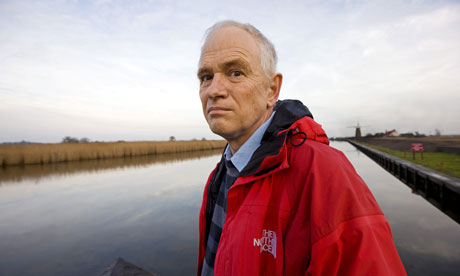
The third and final independent report triggered by the so-called climategate emails will be published today.
More than 1,000 hacked emails from a server at the University of East Anglia's climatic research unit were seized upon by climate change sceptics when they were published last November in the run-up to the Copenhagen climate summit.
The emails revealed scientists speaking in scathing terms about their critics, discussing ways to stonewall sceptics and talking about how to exclude opponents from peer-reviewed journals.
The emails, spread across 13 years, were used by critics to portray climate scientists as manipulating the data to back up the theory of manmade global warming.
The research centre director, Phil Jones, stepped down as the UEA announced an investigation led by the former civil servant Sir Muir Russell. It was the first investigation set up but is the last to be published.
Sir Muir said in February that his panel would examine whether there was any evidence that scientists at the CRU had doctored or suppressed data, perverted the peer review process or improperly blocked freedom of information requests.
Specifically the review has examined whether emails about tree-ring measurements and references to a "trick" to "hide the decline" amounted to manipulation.
One of the original panel members, Philip Campbell, was forced to resign after it emerged he gave an interview defending researchers at the centre.
In March the Commons science and technology committee criticised the UEA for withholding information but concluded that the science of climate change remained intact.
In April an international panel led by Lord Oxburgh concluded there was "no evidence of any deliberate scientific malpractice".
Last week an investigation by Pennsylvania State University found no evidence that its climate scientist Michael Mann had violated university ethics. Mann, who like many climate scientist has been subjected to relentless attack since the exposure of the emails, is the author of the iconic "hockey stick" graph showing a sharp rise in the Earth's temperature.
Some scientists have said the scandal has made it impossible for researchers to hide data from their critics.
In an interview with the Guardian, Mike Hulme, a professor of climate change at the UEA, said: "The release of the emails was a turning point, a game-changer ... Already there is a new tone. Researchers are more upfront, open and explicit about their uncertainties, for instance."
Norfolk police are still investigating how the emails were hacked.

